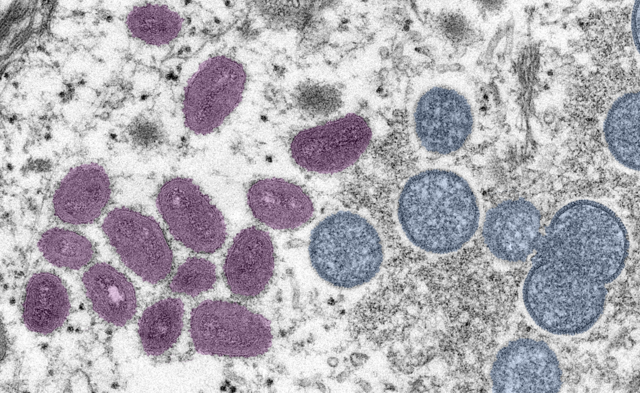The monkeypox outbreak has now spread to 17 countries including the U.S.
The most recent U.S. case is linked to an international traveler in Broward County, Florida, marking the third case reported in the country. The first official U.S. case was reported last week in Massachusetts followed shortly by a case in New York, according to Syracuse.com. The disease has now affected more than 200 people around the globe.
Researchers from Portugal’s National Institute of Health said in a post on a virology research-sharing forum that similarities between the viral genomes from 10 cases detected there and one from a patient in the U.S. appear to suggest that the outbreak had a single origin.
Contact Tracing
To date, 51 cases have been identified in Madrid, Spain, all of which were men. All of the men visited either a sauna in Madrid, a gay-pride event on Gran Canaria in the Canary Islands, or private parties in the city, according to a spokesman for the city’s health department.
The virus is not thought to be transmitted sexually, but close contact involved in sexual encounters could have hastened the outbreak.
While these events and locations may have helped to spread the virus, authorities now believe the cases could be traced back to a single infection. The disease has now affected more than 200 people around the globe. Researchers believe the outbreak may have originated from a traveler in the UK, according the WSJ.
Now is the time to employ contact tracing methods learned throughout the global pandemic of the past few years. Antonio Zapatero, a senior health official for Madrid, explained contact tracing needs to go back at least six weeks to get an accurate idea of where an outbreak began because infected individuals may not show symptoms for several weeks. Monkeypox specifically has an incubation period of up to 21 days, according to the Centers for Disease Control and Prevention.
The U.S. Has a Smallpox Vaccine Reserve
Moneypox is similar to smallpox in many ways, and smallpox vaccinations also protect against the disease. When smallpox was said to be effectively eradicated in the 1970s, vaccinations trailed off as a result.
The good news is, th U.S. has 100 million doses of smallpox vaccine on the shelves ready for deployment.
“We have vaccines squirreled away by our government,” said Blossom Damania, a professor of microbiology and immunology at the University of North Carolina School of Medicine.
Another potential reason for the resurgence of monkeypox is that it has mutated to become more transimissable. Hoever, there is no evidence currently to suggest this is the case.
“Any infection can spread like wildfire in a close-knit community,” said Jimmy Whitworth, professor of international public health at the London School of Hygiene and Tropical Medicine.
Origin
Monkeypox was first discovered in 1958 when an outbreak occurred in monkeys used for research. The first human case was reported in the 1970s in the Democratic Republic of the Congo and, since then, it has mainly been found in central and western African countries. In those regions, most cases are spread through rodents.











